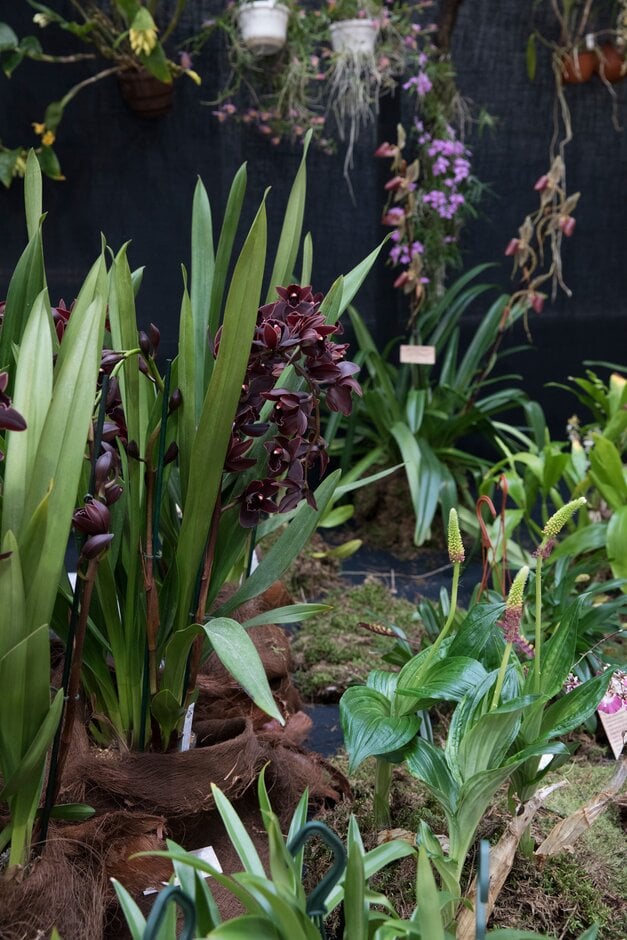Size
Ultimate height
0.5–1 metresTime to ultimate height
2–5 yearsUltimate spread
0.1–0.5 metresGrowing conditions
Moisture
Well–drainedpH
NeutralColour & scent
| Stem | Flower | Foliage | Fruit | |
| Spring | Purple Black White | Green | ||
|---|---|---|---|---|
| Summer | Green | |||
| Autumn | Green | |||
| Winter | Purple Black White | Green |
Position
- Partial shade
Aspect
West–facing or East–facing
Exposure
Sheltered Hardiness
H1CBotanical details
- Family
- Orchidaceae
- Native to GB / Ireland
- No
- Foliage
- Evergreen
- Habit
- Clump forming
- Potentially harmful
- Skin allergen. Wear gloves and other protective equipment when handling
- Genus
Cymbidium are epiphytic, lithophytic or terrestrial orchids with prominent spherical to ovoid pseudobulbs, long linear leaves and fleshy white roots. Several long lasting showy flowers with a distinctive 3-lobed lip are borne on erect or arching flower spikes from the bases of the pseudobulbs
- Name status
Unresolved
How to grow
Cultivation
Best grown at temperatures of around 16°C in the day and 10°C at night. Ensure adequate light levels, but avoid direct sunlight. Water thoroughly when the growing medium is almost dry and allow to drain; allow to dry out between watering during the winter. Fertilise regularly and re-pot after flowering when pot bound using a suitable orchid compost. If possible, put the plant outside in dappled shade after the last frost and bring back in before the frosts start to aid flower initiation. See indoor orchid cultivation
Propagation
Propagate by division; remove and replant old pseudobulbs when repotting in spring
Suggested planting locations and garden types
- Patio and container plants
- Houseplants
- Conservatory and greenhouse
Pruning
No pruning required
Pests
May be susceptible to aphids, glasshouse red spider mite, slugs and mealybugs
Diseases
Generally disease-free
Get involved
The Royal Horticultural Society is the UK’s leading gardening charity. We aim to enrich everyone’s life through plants, and make the UK a greener and more beautiful place.
